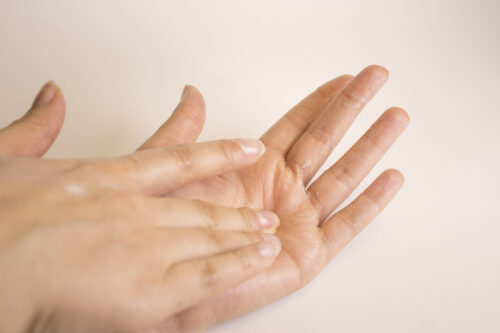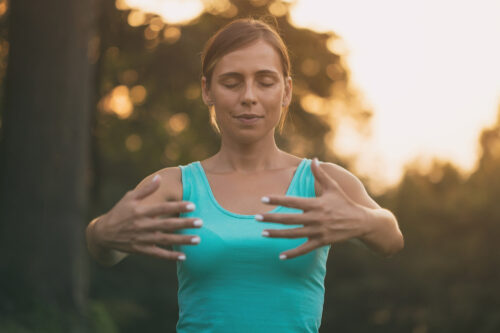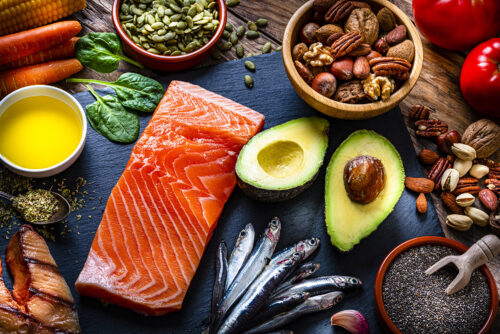Integrative Therapy for Attachment Trauma
Pam Dillon, M.Ed., RMFT. | 579-539-0147

Please click on an IMH consultation service below to find out if it’s right for you.

“Let everything happen to you
Beauty and terror
Just keep going
No feeling is final”
–Rainer Maria Rilke

“So it is not hard to understand where God’s body is, it is everywhere and in everything; shore and the vast fields of water, the accidental and the intended over here, over there. And I bow down participate and am attentive. It is so dense and apparent.”
–Mary Oliver
When a young child suffers ongoing neglect, abuse or misattunement in her primary relationship(s), the unprocessed emotional pain triggers anxiety that may be shunted into the smooth, involuntary muscle of the body. This repressed emotion and defensive anxiety reaction may then produce somatic symptoms of asthma, abdominal pain, IBS, GERD, bladder problems and migraine headaches in addition to depression and other smooth-muscle-related medical presentations like hypo or hypertension, for example.
In research studies, yoga has been demonstrated to significantly reduce asthma attacks as well as GI symptoms in those diagnosed with IBS. It has also been demonstrated to be an effective complementary and/or stand alone therapy for treating symptoms of anxiety and depression.

My own doctoral dissertation research in 1998 demonstrated that Vipassana (Bare attention, awareness or mindfulness) meditation training significantly reduced speech and social anxiety in university students. While the students became less anxious, they also became more tolerant of ambiguity. This was a unique and meaningful finding! Regular mindfulness meditation practice not only reliably reduces anxiety, it conversely increases our capacity to be at ease with uncertainty and not-knowing; a particularly useful inner resource to have during a pandemic!
Over the past two and a half decades, the positive research findings on the effectiveness of mindfulness meditation for treating anxiety and depression have been robust. Regular Vipassana meditation has also been proven to reduce symptoms of chronic pain, anxiety, depression and psychophysiologic disorders such GERD, IBS, gastritis and migraine headaches while also supporting emotional well-being and increasing resilience.
In your first session, I will introduce you to a short background history of this particular form of Buddhist meditation practice. You will then be introduced to the foundational Buddhist teaching known as the Four Foundations of Mindfulness (Satipatthana in Pali). We will also review your goals for incorporating Vipassana practice into your daily life.
Depending on your personal goals, I might then recommend that you book a series of weekly Vipassana meditation appointments with me over the course of one or two months. Over that period of time, I will work with you to establish a personalized and regular formal and informal meditation practice.
I look very much forward to sharing this life-changing practice with you.

“When the eyes and ears are open, even the leaves on the trees teach like pages from the scriptures.”
–Kabir
Shi (finger) atsu (pressure) is a Japanese healing energy practice rooted in the basic tenets of Traditional Chinese Medicine (TCM). It is a safe, easy and effective way for you to more consistently bring emotional balance into your day-to-day life. Research has also shown acupressure to be effective in alleviating both anxiety and depression.
According to Traditional Chinese medicine principles, a flow of healthy, unobstructed vital life force (Qi) circulating throughout the human body delivers energy to all organ systems by way of energy pathways known as meridians. When there is a smooth flow of Qi throughout all the organ systems of the body, there is naturally a felt sense of well-being.
It is useful to remember that e-motion is simply energy in motion. Traumatic stress creates emotional dysregulation and energetic blocks in the energy field. When there is unresolved trauma, energy in the meridians becomes unbalanced, excessive, depleted or stagnant. In other words, unresolved attachment trauma distorts or interrupts the natural flow of emotional energy (Qi) in the body and produces a wide array of debilitating symptoms. From an energetic (TCM) perspective, this imbalance is the root of symptoms of anxiety, panic, depression, dissociation, physiologic disorders and all dis-ease in general!.
In our IMH, self-acupressure sessions, I will offer you simple techniques that are immediately effective, for example, in modulating grief and alleviating symptoms of panic, anxiety, nausea, dizziness, palpitations, emotional overwhelm and dissociation. You will soon become more adept and confident in regulating your emotional energy with these techniques.
In your self-shiatsu sessions, you will also learn how to pair various forms of Pranayama (breathing practices) with these simple self-acupressure techniques. These skills will then become part of your lifelong, energetic healing toolkit for grounding, regulating and balancing your emotions.

“The sage is like water”
–Lao Tzu
Qi is the Chinese word for vital energy or life force. Gong means to practice or to cultivate. Qi Gong exercises originated in China over 4000 years ago. They represent the preventive and self-healing component of Traditional Chinese Medicine (TCM).
Qi Gong has been shown to reduce fatigue and have anti-depressant effects in patients with chronic fatigue. It has also been proven effective in alleviating depression, anxiety and anger proneness in regular qigong exercisers.
In your Qi Gong appointments, we will develop an individualized program of simple and graded exercises to address your concerns. Daily repetition of the coordinated breath and movement practices will eventually provide you with a reliable way to return to a more grounded sense of inner ease and calm.

If you’ve been diagnosed with depression, you are also likely to have elevated blood markers of oxidative stress and inflammation. Regular consumption of fast food, sweets and animal protein creates a pro-inflammatory metabolic state in the body and increases the risk of depression and anxiety.
When you book your Anti-Inflammatory Nutrition consultation with me, we’ll look at simple, easy and practical ways for you to begin to increase your intake of omega-3 fatty acids along with more colorful fruits and vegetables, legumes, whole grains, nuts and seeds. Phytonutrient-dense fruits and vegetables have been shown to improve mood and memory while lowering the risk of depression. As Andrew Weil, M.D. puts it, an anti–inflammatory diet promotes foods that can help control inflammation, as well as the micronutrients and phytonutrients needed to protect your mind as well as your body.
“Over twenty years ago Pam Dillon became my first meditation teacher. Time and again, Pam has helped me to cultivate awareness through teachings grounded in unwavering compassion. Pam cuts right through to the heart of practice because her teaching is a practice of the heart. Gently but firmly she has quieted my sometimes frantic mind and brought me back home to the body Being the beneficiary of Pam’s insight and wisdom has been one of the greatest blessings in my life. Pam is truly a gifted and inspirational teacher.”
